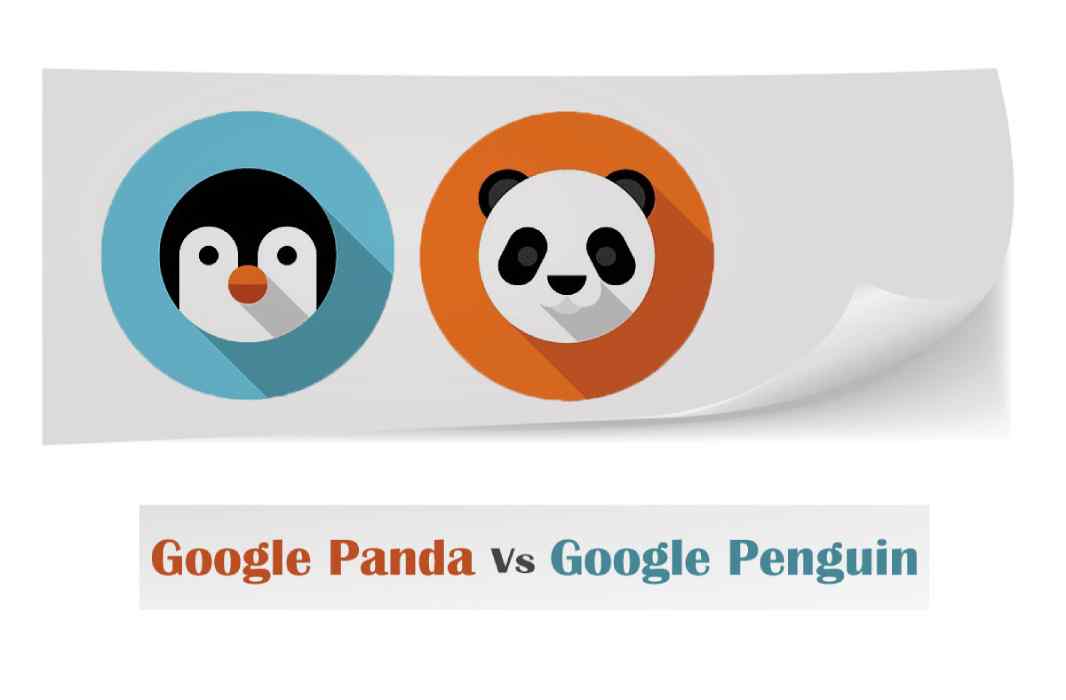Difference Between Google Panda and Google Penguin
Before you understand the difference between Google Panda and Google Penguin, you should consider that Google’s algorithm deviations are 600 times a year. This is the minimum we are talking about here. Sometimes the frame can be more petite, and other times it can be massive. Penguin, Panda, Hummingbird, and Local are mainly algorithmic updates that the search train results page (SERP) uses to display important, accurate, measurable results.
What is Google Panda?
Google Panda is available in 2011 and has since offered monthly updates, called “Surges.” The main goal is to make sure the SERP doesn’t have low content. In principle, spam or content that the SERP considers obsolete and alien to the identified and eliminated context.
Panda 4.1 was introduc on September 23, 2014. Google’s Pierre Far believes that low-quality content should be target more precisely. From a practical point of view, it was main aimed at pages with little content and market tools such as games, text, etc.
Google has recognized that eBay is quite a robust website and, therefore, one of the best web domains. However, eBay users also generated an endless stream of unique content that most Google users found unnecessary. This is the reason the purge was perform.
The Panda update has been dubbed “Farmer” due to its harm impact on many content farm. Content farms are websites that collect or sometimes steal information from various websites. Their particular goal is to have a great page index that helps them rank well for a wide variety of keywords. one of the reasons Google strives to create original content for good search engine optimization. The most significant point to note about Panda is that it is becoming more mature and efficient at delimiting and removing unnecessary and stolen content. This will undoubtedly harm websites that have not taken the right steps to produce good
What is Google Penguin?
Google Penguin primarily targets over-optimized content, which has far too poor link-building techniques and keyword stuffing. The term “keyword stuffing” refers to using keyword that are not required, non-organic, or irrelevant. This is done so that the page has high importance in Google search.
The latest information for Penguin is Penguin 3.0, and it was releas on October 18, 2014. When Google Penguin’s fifth update, Penguin 2.0, was releas, several websites were taken down, some of which are now trying to disappear. These updates frequently happen, which is why web admins are eagerly awaiting and preparing for them.
Differences
So, the primary difference between Google Panda and Google Penguin is that Panda targets spam websites and Penguin deals with broken links and excess keywords. In the case of Panda, the only way to survive Panda’s changes is to update the website and remove unnecessary and low-quality pages.
You should to check out over-optimized websites and improve brand consciousness and social media usage by launching new campaigns. You can also separate affected websites from those that are not.
With Penguin, you have to ditch black hat SEO techniques. Plus, don’t be fool by the follow:
- Too many Link Building
- Keyword Filling
- Registration Forms
- Content that has No Meaning or Application
It would help if you also eradicated links from the same IP address or domain. If you do this, your position will drop meaningfully. You can also use Google’s Disown Links Tool to remove extreme links. You should also make sure that your page does not contain artificial links created to alter Google’s search engine results, as Penguin will severely penalize you. In the case of Panda, it is necessary to delete the plagiarized pages.
Panda does not generally point to individual pages. However, Penguin only attacks unique locations. So, if your website has very little original content and very little stolen content, Panda will punish you. However, your entire website may be penaliz for excess keyword spam.
In the case of Panda, it is not necessary to submit a restore request. Penguin is very similar, but there is hope with manual warnings. With Panda, it doesn’t help if you eliminate the links manually as the content is more significant here. Manual elimination can help with Pinguin, but you should allow plenty of time.
Once you remove the unwanted content with Panda, your website can be restore until the next update. However, it takes longer with Penguin as the updates are not as regular as with Panda.
Also Read: What is Domain Authority

